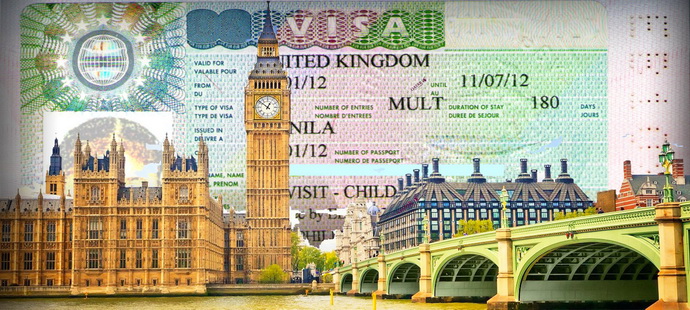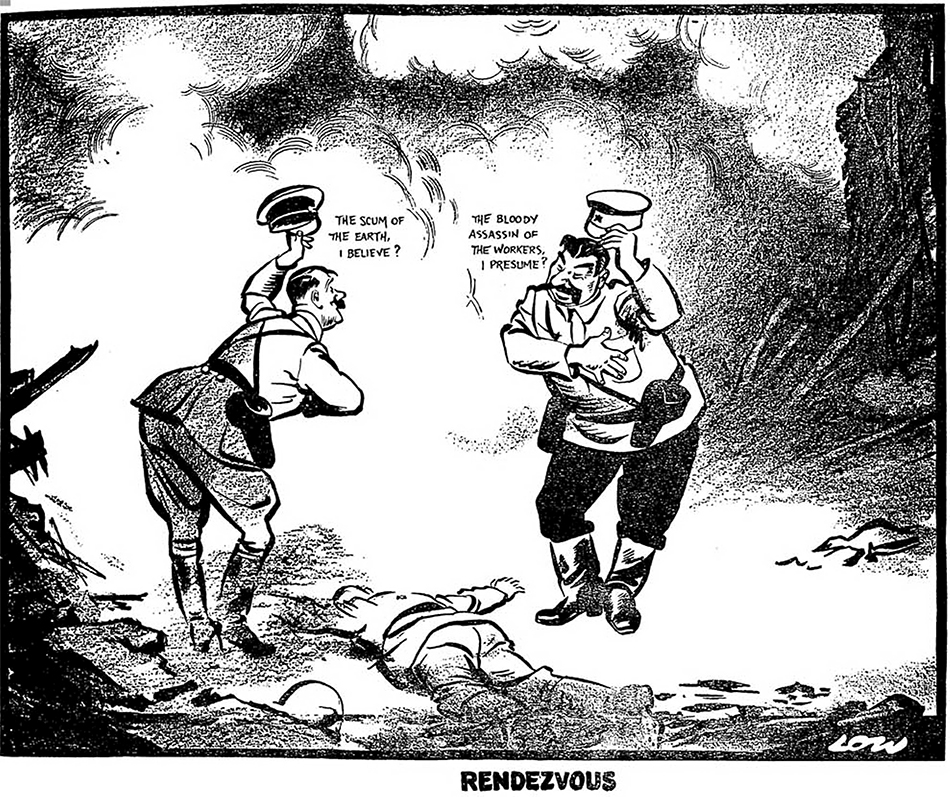Last year’s visa-free regime for Ukraine with the EU became a truly significant achievement of Ukraine. To achieve the goal, Kyiv fulfilled a number of tasks. Electronic declarations for state officials, anti-corruption bodies, a new passport system, and dozens of other changes - many of them could have been left on paper, had there not been a “carrot” in the form of a visa-free policy.
These requirements were by no chance random. The EU itself identified the reforms that Ukraine should have made to prove that it’s not a migration threat.
The lion’s share of them, in particular, the transition to biometric passports, concerned the security of documents. This gave the EU the certainty that there are no well-established schemes for selling or forging passports in Ukraine. Anticorruption reforms have reduced the risk of passport-makers being bribed. The protection of minority rights has given a guarantee that, for example, LGBT activists will not aim to get asylum in the EU. Also, there were laws about controlling the border, fighting international crime, the migration policy - a bunch of important, at times sometimes imperceptible changes.
Their performance was meticulously evaluated. Kyiv fulfilled the requirements and from 2017, Ukrainians could travel to the EU without visas.
Except to the United Kingdom.
While all of Europe softened the requirements for Ukraine, London “tightened the screws.”
Expensive and tedious
Right now, 13% - nearly every eighth – of Ukrainians are refused a British visa – 5,500 in 2017. This is twice more than the number of refusals by the strictest Schengen zone countries: last year, the Czech Republic refused to grant visas to 6.9% of applicants. The number of British refusals is disproportionately high compared to other European countries requiring a visa to enter the UK. For instance, only 2.5% of Russians were denied visas.
To the already high 13%, you need to add the “hidden refusals,” when the visa is issued too late. Such instances, which led to lost airplane tickets and money, destroyed tourist plans, disrupted business meetings and even inability to participate in sports competitions, have become a daily occurrence.
To this, one needs to add the high fees and long waiting times. The price of the cheapest British visa is 110 Euros. Although the decision of visa officers is made during 15 working days (i.e. three weeks), the entire visa process, if it’s not delayed without explanation, lasts at least one month. It takes 7-10 days to register for a visa appointment, and then several more days to have the visas be printed and mailed from the British visa hub which for an inexplicable reason is located in the capital of Poland, Warsaw. This is despite Poles having no need for visas to visit the UK, as they are EU citizens.
It wasn’t always this way: up till 2012, all Ukrainian applications were reviewed in Kyiv. This allowed making faster and more adequate decisions on visas. The appeals of the last years leave the impression that a part of the mistakes and discriminatory decisions could have been avoided if the visa officer lived in Ukraine and knew the local realities better.
If you want to process your visa faster, you can pay an additional 251.18 Euros. This allows for a decision to be made in 5 days – but doesn’t guarantee it. The “urgent” visa applications of Ukrainians were sometimes reviewed for two weeks and more. Voyages and plans were destroyed. And in these cases, the United Kingdom doesn’t reimburse even the additional fee.
To compare, the average monthly salary in Ukraine is 277 Euros. And the cheapest Schengen visa, for short-term visits, was 35 Euros – before the introduction of the visa-free regime.
Great Britain: the uninviting country
In practice, the British visa policy towards Ukraine at times resembles cruel jeering.
In May, when Kyiv prepared for the Finals of the Champion’s League, the whole world discussed the problems of British fans who were left without hotels. But in 2017, the Finals were held in Kyiv, and Ukrainians faced at times impregnable visa problems. Like the editor of Ukraine’s Novoye Vremya Vitaliy Sych. He lost two tickets to the games, 390 GBP each, airplane tickets, and hotel reservations. All because he applied 15 calendar days, not working days, in advance. Too bad nobody at the visa center warned him during the application process. And Warsaw didn’t care when the journey was planned.
In this case, even the “official” terms weren’t adhered to – he got his passport one week after the end of the Finals.
Paying for urgency doesn’t always work too. Anastasiya Topolska, a DJ from Kyiv, paid to have her application reviewed in 5 days. However, this didn’t help: Warsaw “marinated” the documents for over two weeks. Plans for the concert were ruined.
And the well-known economist and deputy Finance Minister (2015-2016) Olena Makeieva applied for a visa three times during the last 10 years. All three times, she received her passport after the plane left.
A 2-minute google search could have verified her identity. But the British needed over a month for giving her a visa.
There are also appalling cases, as well. For instance, the journalist Ekaterina Sergatskova, who won the prestigious Kurt Schork Awards but couldn’t come
for the ceremony. The British decided that Ekaterina didn’t prove the purpose of her journey.
But perhaps the most outrageous case is the one of the Ukrainian sportsman Yevhen Hutsol, which cost Ukraine the participation of its team in the 4*400 meters relay race at the World Championships in London in March 2018. The British decided that one wrong letter in the spelling of his last name in Latin is a serious problem. The additional fee for an urgent consideration, calls from the Ministry and the embassy didn’t help. The sportsman didn’t receive his visa before the championship started, and the Ukrainian team was disqualified.
However, the British Home Office - as if treating Ukrainians as "third-class people" - states that they do not see this as a problem! This is not a figurative statement. The Ukrainian embassy in London confirmed in a written statement to European Pravda that during 2017, the Home Office confirmed that it has no intention to review the visa regime for Ukraine. In 2018, the embassy suggested holding consultations regarding visa delays, unsubstantiated refusals, inability to appeal decisions, compensations etc. All the answers of the British side were negative.

A monopolist's business approach
The Home Office, which seems to behave as a monopolist on this "market," is causing problems even for British diplomats.
UK's Foreign and Commonwealth office would be glad to help Kyiv, as the current situation with visas is causing problems even for diplomats. But the attempts to convince the Home Office that something needs to change have not been successful.
In October 2017, Alan Duncan, Minister of State for Europe and the Americas (manages the Ukrainian direction in the FCO), wrote a very detailed letter to the Home Office, where he elaborated the shortcomings in the work of the visa service and offered his colleagues ways to solve them.
The Home Office's three-page reply reveals the business approach of a monopolist.
Ukrainians complain that they pay $500 for an urgent 5-day visa, but the Brits lose their documents and they get their passports back in several weeks? The Home Office admits this happens, but stressed they won't compensate the extra expenses. They say,"the cause of the delay is difficult to establish."
If a Ukrainian applicant finds himself in trouble, if he is losing his tickets and his travel plans are being destroyed, if he doesn't understand where his passport is (and this happens quite often) - the Home Office is ready to talk to him... only if he pays additional expenses. For this, they have the service of paid-for telephone numbers and answers to emails (!!!).
The Home Office sees no problem that visas for Ukrainians are printed in Warsaw, not Kyiv.
Answering the sensible remarks of its country's Foreign Office about the diplomatic mission in Kyiv (and the ambassador personally) being forced to solve problems created by Warsaw, the head of this department, as if jeering, replied: don't talk to those who have problems, redirect them to us.
That is, the ambassador had to ignore the cases when, because of a visa delay, the Ukrainian team was disqualified at a world championship? Or when there are problems that become top news in Ukraine? Quite an interesting approach, no less than an innovation in international relations. In addition, European Pravda knows quite a few examples of how, due to the illogical actions of the UK's Warsaw office, even official visits were threatened!
Separately, the minister refused to give the British Embassy in Kyiv the right to print visas in urgent cases.
And, like a cherry on the top, the head of the Home Office confirmed that it refuses to negotiate with Ukraine on lifting visa requirements even for holders of diplomatic passports. The minister explained that this presents a dimension of a migration threat and a threat to national security and suggested the issue be discussed at the interagency level. European Pravda's sources said that further talks have not been successful yet, but this answer is by itself self-explanatory.
Brexit echoes
In 2005, President Yushchenko lifted visa requirements for all EU countries. They were not mentioned by name, because then nobody imagined that one of the members of the Union would want to leave it.
History proved otherwise. On 30 March 2019, the United Kingdom will cease to be a member of the EU. And so, on that day, "Yushchenko's visa-free regime" will cease to act for British citizens.
Ukraine has offered the Home Office talks on this issue, but diplomatic correspondence suggests that the institution has no intention to take them up. Despite the incredible visa issues, the Home Office says that their work is "excellent" and have nothing to say.
The British do not agree to the talks because they believe that Poroshenko won't take the road of conflict and will sign a new visa-free regime for the UK.
But this calculation is false.
European Pravda is deliberately making this visa-free conflict public and is convinced that Kyiv should not reinstate the status quo until London shows some reciprocity.
Of course, we have to be realists: the UK will not cancel visas for Ukraine anytime soon. Negotiations will be difficult and lengthy, but the main thing is to start them.
"We are ready to discuss various options for visa facilitation with the British side... The strategic goal is to develop a roadmap for the gradual liberalization of the visa regime for Ukrainian citizens by the United Kingdom, such as that successfully implemented on the road to a visa-free regime with the EU," said the Ukrainian embassy to the UK in its comments.
But something needs to be done with the current shameful visa practice now. And Ukraine should not be afraid of re-issuing visas for British citizens.
We are not in 2005. No one will force the British to queue at the embassy. At airports, the system of "visas on arrival" works, the Ministry of Foreign Affairs issues electronic visas. Of course, their price must be equated with the cost of a British visa for Ukrainians.
This step will help British friends to decide to start talking to Kyiv. Return to printing visas in Kyiv. Reduce the visa fees. Issue not ridiculous 6-month, but at least two-year visas. And over time we will definitely come to a visa-free regime between our friendly states.
There are no alternatives to this.
Read also:
- What EU countries can Ukrainians now visit without a visa? | Infographic
- Ukraine’s path to the visa-free regime with the EU, in cartoons
- Ukraine’s visa-free saga with the EU. Seven things you should know
- What has Ukraine done to get a visa waiver from the EU?
- The morning after: first day of EU-Ukraine visa-free era





